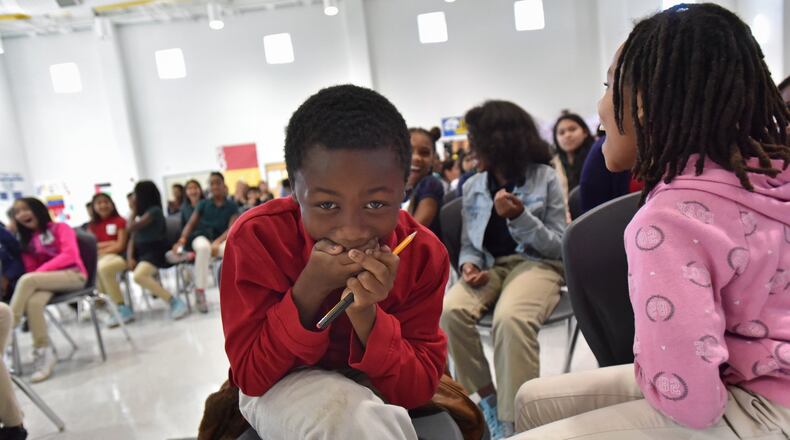Insufficient internet access in metro Atlanta has helped propagate a divide that’s keeping some residents from achieving economic success, local leaders said at a panel discussion Wednesday.
“We do leave a lot of people behind,” said Tom Cunningham, the chief economist of the Metro Atlanta Chamber of Commerce. “That’s a bad thing in a social sense. It’s a bad thing in an economic sense.”
- PHOTOS: How excited are these new computer-owning Clayton County kids?
Without access to the internet, students have trouble finishing homework; it is harder for adults to find and apply for jobs; and seniors become more isolated from their communities, said David Cohen, the senior executive vice president and chief diversity officer for Comcast.
Cohen announced on Wednesday that Comcast would be expanding its Internet Essentials program in the metro area. The program provides discounted laptops and internet connections to low-income households, as well as internet literacy classes.
“There are real barriers to (internet) adoption,” Cohen said. “People don’t understand why they need internet. They’re afraid of the internet.”
Internet Essentials, in its seventh year, has connected more than 250,000 Georgia residents to the internet, Cohen said. The program was previously available to low-income households with students and those who receive public assistance to pay for housing, but the latest expansion will allow seniors who receive public assistance to get help to get online, as well.
Cohen said he hopes expanding the program to seniors will provide more opportunities to connect, in order to help reduce the isolation some might feel. Users will have access to 40 hours of free wifi outside their homes, as well as unlimited free wifi at home.
In Georgia, Cohen said, 55 percent of all households with incomes below $35,000 are online. That’s compared to 92 percent of households with incomes above $75,000.
“The digital divide is one of the most unjust and unfair impediments” in America, affecting mostly poor and minority residents, Cohen said. “It’s the equivalent of not having electricity or running water.”
When people don’t know how to access and navigate the internet, Cohen said, they’re at a disadvantage when it comes to having the skills needed to work in modern-day jobs.
Computer literacy, Cunningham agreed, has become necessary for upward mobility. Nancy Flake Johnson, president and CEO of the Urban League of Greater Atlanta, said lack of internet has become a block for people who have talent, but lack means. Over time, she said, access to technology allows people to improve both their education and their income.
“Technology is a civil rights issue,” said Rohit Malhotra, executive director of the Center for Civic Innovation. “Access to internet is not a technology problem. …Access is an equality issue.”
Malhotra said technology alone won’t lift people out of poverty, but it will help give people opportunities.
“We cannot claim we’re thriving economically if we’re leaving so many people behind,” Malhotra said. “If our product or service is not equitable to everyone, it’s not working.”
MYAJC.COM: REAL JOURNALISM. REAL LOCAL IMPACT.
The AJC's Arielle Kass keeps you updated on the latest happenings in Fulton County government and politics. You'll find more on myAJC.com, including these stories:
Never miss a minute of what's happening in Fulton politics. Subscribe to myAJC.com.
In other news:
About the Author
Keep Reading
The Latest
Featured




